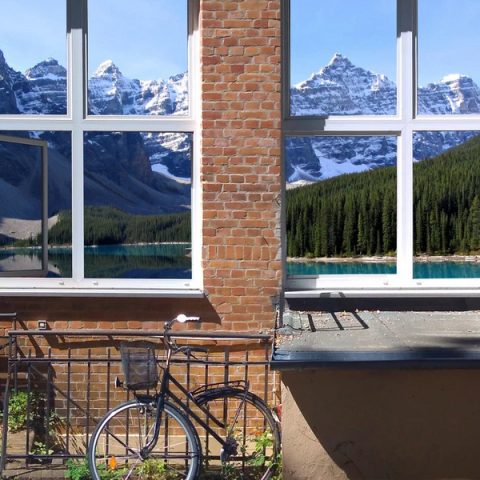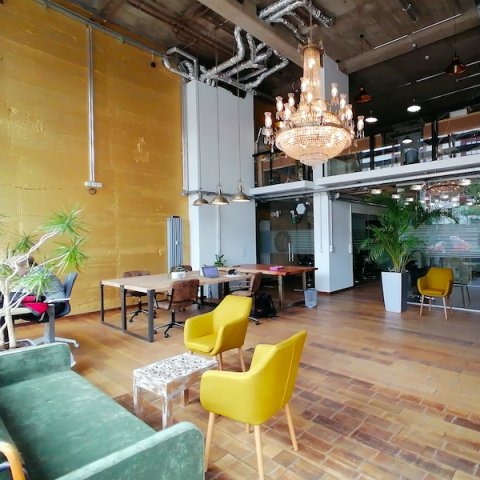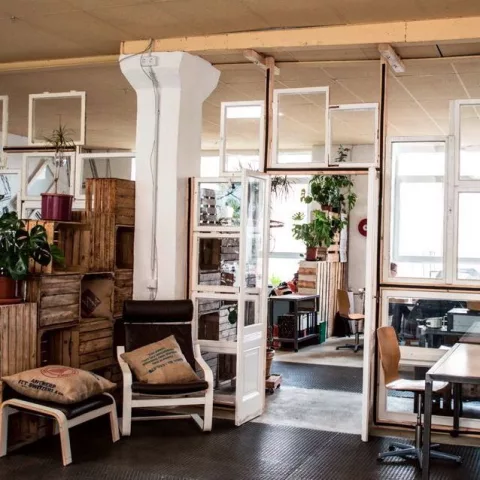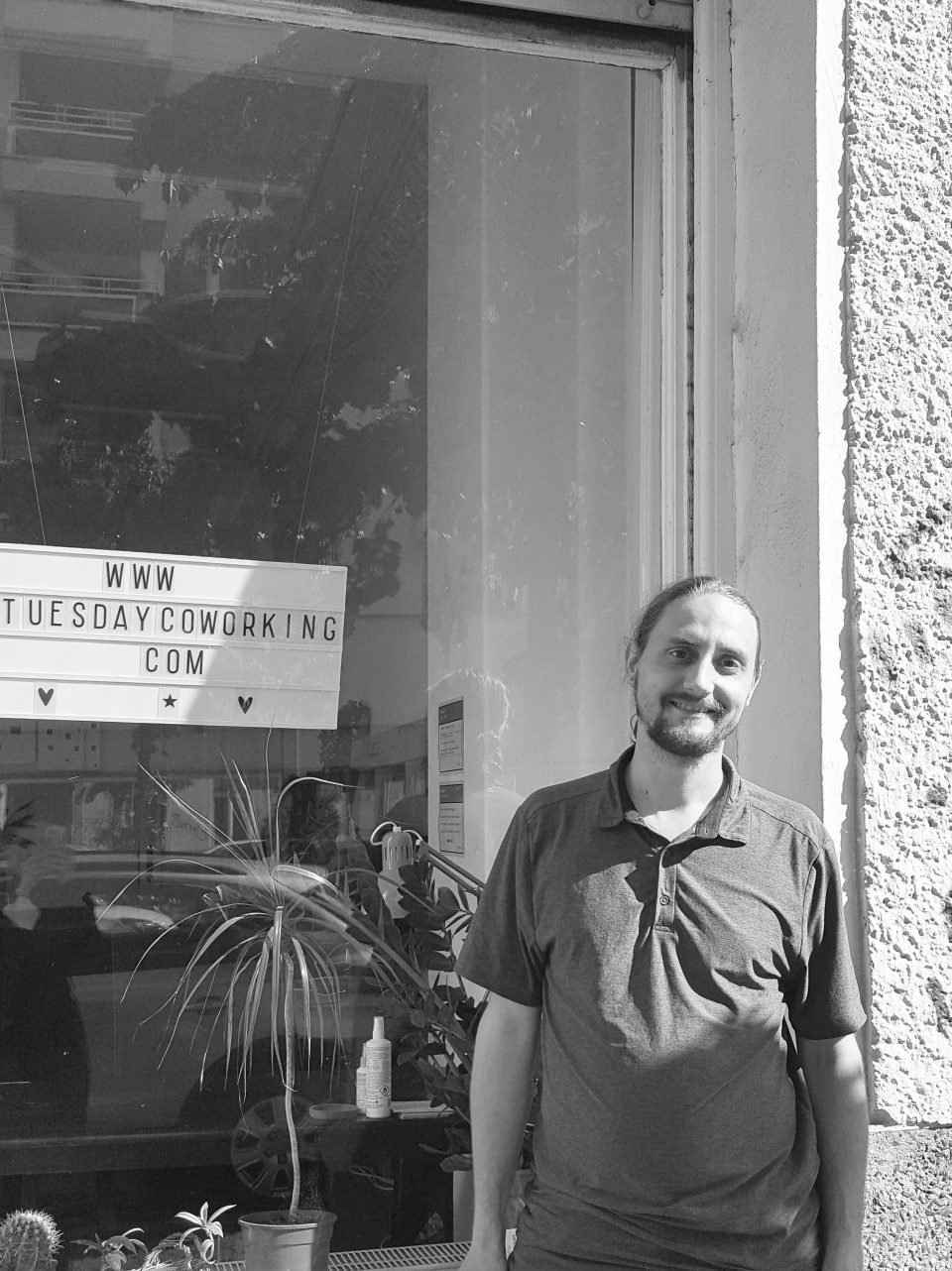
14. Juni 2021
<< English version below >>
Christoph Seeger arbeitet als Technischer Manager von Photovoltaik-Anlage bei der Firma Obton und hat seinen Fix Desk im Feurig-Space. In diesem Interview erzählt Christoph über das Projekt Sterngartenodyssee, eine Initiative solidarischer Landwirtschaft – kurz SoLaWi – und welche Rolle tuesday coworking dabei spielt.
OV: Christoph, warum machst Du bei der Sterngartenodyssee mit?
CS: Ich bin auf einem Bauernhof aufgewachsen und hier in der Großsstadt fehlt mir manchmal der Kontakt zum Land. Zudem finde ich es sehr wichtig, dass wir nicht den Bezug zu einem der grundlegendsten Dinge unseres Lebens – nämlich die Produktion unserer Nahrung – verlieren. Die Sterngartenodyssee verbindet Stadt und Land auf einzigartige Art und Weise, wobei man selbst Teil der Produktions- und Lieferkette zwischen Feld und Esstisch ist. Neben dem biologischen, regionalen und frischen Gemüse, welches ich direkt zur Arbeit geliefert bekomme, hab ich auch große Freude an dem Projekt.
OV: Nicht nur bringt man sich finanziell und praktisch ein, sondern nimmt auch an demokratischen Entscheidungsprozessen innerhalb der Initiative ein. Wie sieht die Gruppendynamik konkret aus?
CS: Die Aufgaben und Abläufe innerhalb der Gruppe sind selbstorganisiert, d.h. alle die in der Feurigstraße ihr Gemüse abholen – darunter auch einige Nicht-Tuesdayer – packen ab und zu beim Gemüse-Sortieren mit an. Verschiedene Rollen wie z.B. “Finanzen”, “Gruppenvertretung” oder “externe Bestellungen” haben wir bei einem gemeinsamen (online) meeting verteilt. Das ganze macht echt Spaß, denn ich finde wir sind eine harmonische Gruppe, bei der sich jeder so gut er kann einbringt.
Darüber hinaus gibt es über das ganze Jahr verteilt verschiedene Treffen und Gremien, welche das gesamte Projekt, also sowohl die Abholstationen als auch die Höfe, betreffen. Die Treffen werden nach soziokratischer Methode organisiert wobei die verschieden Rollen in Wahlen besetzt werden. Jeder kann also seine Meinung mit einbringen und z.B. mit beeinflussen, was im nächsten Jahr angebaut wird.
OV: Wie hoch ist der monatliche Mitgliedschaftsbeitrag und wie viel kommt am Ende auf den Tisch ?
CS: Eine ganze Portion kostet 93 € im Monat, das reicht für eine 4-Köpfige Familie. Man bekommt wöchentlich frisches Gemüse, in den Sommermonaten etwas Obst und 6 Flaschen Saft pro Monat. In den Winter- und Frühlingsmonaten bekommt man meist gelagertes Gemüse, in manchen Monaten wird nur alle zwei Wochen, dafür aber etwas mehr geliefert.
Zudem kann man ca alle zwei Monate bei einer Partner-Kooperative aus Sizilien Zitrusfrüchte, Nudeln, Olivenöl und allerlei anderer Lebensmittel aus biologischem Anbau bestellen, welche dann auch an die Abholstation geliefert werden.
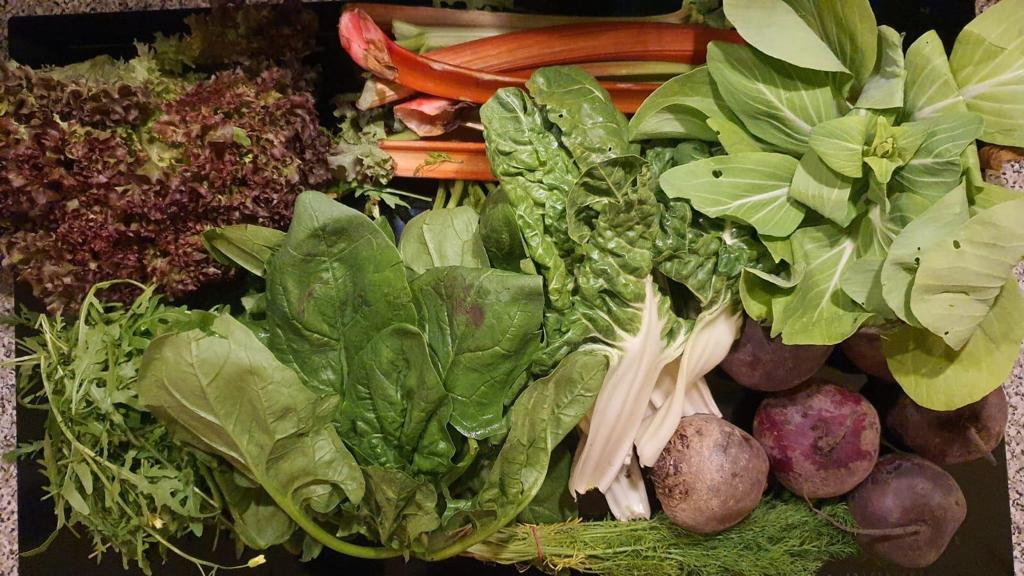
OV: Mit saisonalem und regionalem Anbau ist man stark wetterabhängig und dadurch kann auch die Ernte schwanken. Durch den monatlichen Beitrag haben die Bauern und Bäuerinnen eine Art Grundsicherung, aber was bedeutet das für die einzelnen Konsument*innen? Wie planbar ist die wöchentliche Versorgung und mit welchen Faktoren – in Langzeitperspektive – ist angesichts des Klimawandels zu rechnen?
CS: Das sind ganz wichtige Punkte, die du da ansprichst. Die Gemüse Bauern und Bäuerinnen sind nicht vom Markt abhängig und haben dadurch die Sicherheit, dass Sie ihre Kosten auch bei schlechten Ernten decken können. Ich denke, dass die Konsument*innen durch die große Diversität an geliefertem Gemüse keinen Nachteil spüren. Wenn in einem Jahr z.B. der Salat nicht so gut wächst, wachsen dafür die Tomaten umso besser. Außerdem sind die aktuell fünf Höfe welche das Projekt beliefern im Umland von Berlin und Leipzig verstreut, dadurch verteilen sich die Wetterschwankungen.
Die Langzeitperspektive ist für das ganzen Projekt das wichtigste Thema, sei es bei in Form von Krediten von den Mitglieder*innen für die Höfe organisiert werden, in Form eines in Deutschland einzigartigen regenerativen Obstanbaus, bei dem die Gesundheit der Pflanzen im Vordergrund steht oder bei dem Thema Humusaufbau und der zum Teil mit Pferden schonenden Bewirtschaftung der Felder.
Die Regionalität hat sicherlich Auswirkungen auf das Klima, denn die Lebensmittel werden müssen nicht allzu weit durch die Gegend gefahren. Außerdem wird das Gemüse in Klappkisten geliefert, die ständig im Umlauf sind und nicht nicht in kleinen, mit Plastik verschweißten Schächtelchen, wie es im Supermarkt oft der Fall ist.
OV: Zu guter Letzt, was hat das Ganze mit tuesday coworking zu tun?
CS: Die Abholstation befindet sich in der Küche im Feurig-Space, d.h. das Gemüse wird immer am Mittwoch angeliefert, sortiert und am Mittwoch Abend oder am Donnerstag von den abgeholt von den Mitgliedern. Der Coworking Space eignet sich bestens als Abholstation, denn die Lebensmittel können flexibel den ganzen Tag über abgeholt werden, was gerade für Berufstätige sehr praktisch ist.
<<English from here>>
Christoph Seeger works as a technical manager of photovoltaic systems at the company Obton and has his Fixed Desk at tuesday’s first coworking space on Feurigstrasse. In this interview, Christoph talks about the Sterngartenodyssee project, an initiative of solidarity-based agriculture – in German “SoLaWi” for short – and what role tuesday coworking plays in it.
OV: Christoph, why do you take part in the Sterngartenodyssee?
CS: I grew up on a farm and here in the big city I sometimes miss contact with the countryside. I also think it’s very important that we don’t lose the direct approach to one of the most fundamental things in our lives – namely the production of our food. The Sterngartenodyssee connects city and countryside in a unique way where you are part of the production and the supply chain between the field and the dinner table. Besides the organic, regional and fresh vegetables that I get delivered straight to my workplace, I also get great pleasure from the project itself.
OV: Not only do you contribute financially and practically, but you also participate in democratic decision-making processes within the initiative. What does the group dynamic look like in concrete terms?
CS: The tasks and processes within the group are self-organised, for example, everyone who collects their vegetables from Feurigstrasse, including some ‘non-tuesdayers’, helps out with sorting vegetables from time to time. We delegated different roles such as “finances”, “group representative” or “external orders” at a joint (online) meeting. The whole thing is really fun; I think we are a harmonious group where everyone contributes as much as they can.
In addition, there are various meetings and committees throughout the year that concern the entire project, i.e. both the pick-up stations and the farms. The meetings are organised according to the sociocratic method, whereby the various roles are filled through elections. This way, everyone can contribute their opinion and influence what will be grown next year.
OV: How much is the monthly membership fee and how much is on the table in the end?
CS: A whole portion costs €93 per month, which is enough for a family of four. You get fresh vegetables every week, some fruit in the summer months and six bottles of juice per month. In the winter and spring months, you usually get stored vegetables, and in some months deliveries are only made every fortnight, but you get a little more.
In addition, you can order citrus fruits, pasta, olive oil and all kinds of other organically grown food from a partner cooperative in Sicily roughly every two months, which is then also delivered to the pick-up station.
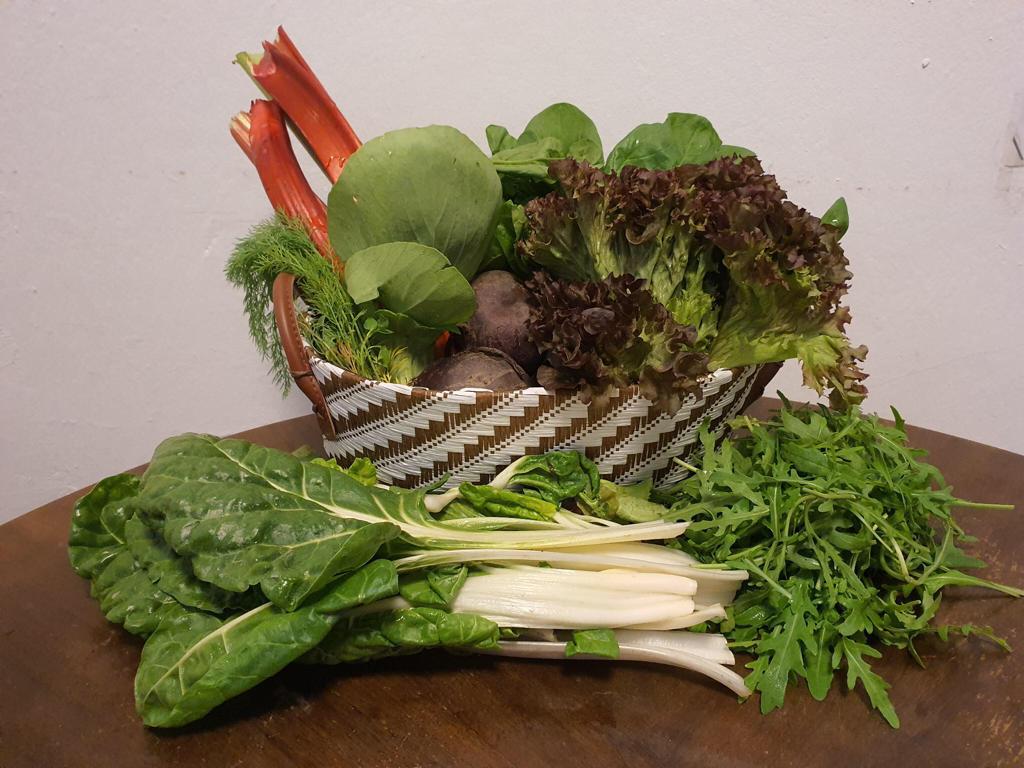
OV: Seasonal and regional cultivation are heavily dependent on the weather and therefore the harvest can also fluctuate. Through the monthly contribution, the farmers have a kind of basic security, but what does that mean for the individual consumers? How predictable is the weekly supply and what factors – in a long-term perspective – can be expected in view of climate change?
CS: These are very important points that you raise. The vegetable farmers are not dependent on the market and therefore have the security that they can cover their costs even if the harvests are bad. I think that consumers do not feel any disadvantage because of the great diversity of vegetables supplied. If, for example, the lettuce doesn’t grow so well in one year, the tomatoes grow all the better. In addition, the five farms that currently supply the project are scattered around Berlin and Leipzig, so the weather fluctuations are spread out.
The long-term perspective is the most important issue for the whole project, be it in the form of loans organised by the members for the farms, in the form of regenerative fruit cultivation that is unique in Germany, where the health of the plants is in the foreground, or in the issue of humus build-up and the cultivation of the fields, which is partly done with horses.
Regionality certainly has an impact on the climate, because the food does not have to be transported too far across the region. In addition, the vegetables are delivered in folding crates that are constantly in circulation and not in small plastic-wrapped boxes, as is often the case in supermarkets.
OV: Last but not least, what does the whole thing have to do with tuesday coworking?
CS: The pick-up station is in the kitchen at our Feurigstrasse coworking space, so the vegetables are always delivered on Wednesday, sorted and picked up by the members on Wednesday evening or Thursday. The coworking space is ideally suited as a pick-up station, because the food can be picked up flexibly throughout the day, which is very practical, especially for working people.
Read more about the intiative here: https://www.sterngartenodyssee.de/
Interested to besome a member? Write an email to: willkommen@sterngartenodyssee.de

